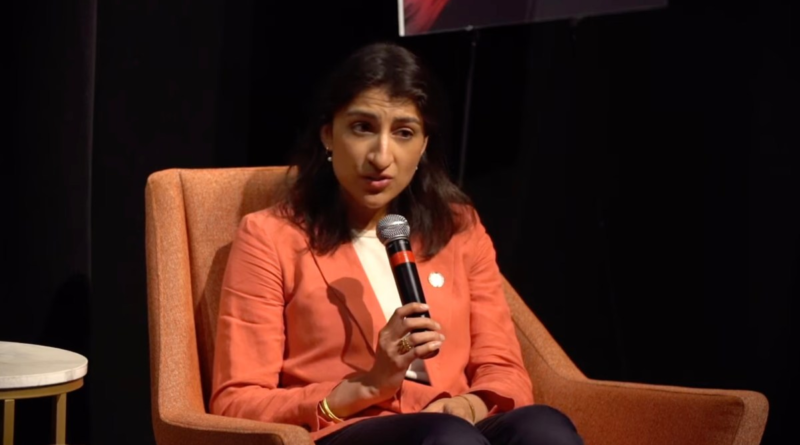FTC Chair Lina Khan shares how the agency is looking at AI
The U.S. Federal Trade Commission will examine the rise of AI technology across all fronts, said FTC Chair Lina Khan, speaking at TechCrunch’s StrictlyVC event in Washington, D.C., on Tuesday. However, the agency’s goal is not to crush the startups that are aiming to compete in this space with increased regulation, Khan said.
“We want to make sure that the arteries of commerce are open, that the pathways of commerce are open, and if you have a good idea, if you’re able to commercialize it — if there’s interest in the marketplace — that you have a fair shot at competing,” Khan told the audience. “Your fate is tied to the strength of your idea on your business talent, rather than whether you’re threatening one of the big guys who could stomp you out.”
Still, the FTC is not ignoring the technology or its potential harms. In fact, it’s already seeing an uptick in consumer complaint cases in some areas, like voice-cloning fraud, Khan said.
That type of technology recently made headlines as OpenAI released then pulled a ChatGPT voice that sounded like actress Scarlett Johansson, who famously voiced the AI in the movie “Her.” The actress claims she refused OpenAI’s offer to record her voice for the chatbot, so it cloned her instead. (OpenAI claims it simply used another voice actress.)
Asked which areas of AI the FTC was watching, Khan explained that it was everything.
“We’re really looking across the stack — so from the chips to the cloud, to the models, to the downstream apps — to try to understand what’s going on in each of these layers,” she said. Plus, the agency is looking to hear from “folks on the ground” about what they see as both the opportunities and the risks.
Of course, policing AI comes with its challenges, despite the number of technologists the FTC has hired to help in this area. Khan noted the organization received north of 600 applications from technologists seeking work at the FTC but didn’t say how many of those were actually hired. In total, though, the agency has around 1,300 people, she said, which is 400 people fewer people than it had in the 1980s, even though the economy has grown 15 times over.
With dozens of antitrust cases and close to a hundred on the consumer protection side, the agency is now turning to innovative tactics to help it fight fraud, particularly in the AI space.
For example, Khan mentioned the agency’s recent voice-cloning challenge where it invited the market and the public to submit ideas as to how an agency like the FTC would be able to detect and monitor in a more real-time way whether a phone call or voice is real, or if it’s using voice cloning for fraudulent purposes. In addition to sourcing winning ideas from challenges like this, the FTC hopes to also spur the marketplace to focus on developing more mechanisms to fight AI fraud.
Another area of focus for the FTC is the focus on what openness really means in the AI context, Khan explained. “How do we make sure it’s not just a branding exercise, but when you look at the terms it’s truly open?” she asked, adding that the agency wanted to get ahead of some of those “open first, closed later” dynamics that were previously seen in the Web 2.0 era.
“I think there’s just a lot of lessons to be learned, generally, but I think especially this moment, as we’re thinking about some of these AI tools, is a very right moment to be applying them,” Khan said.
In addition, the agency is poised to watch the industry for AI hype, where the value of the product is being overstated. “Some of these AI tools we think are being used to market, and to kind of inflate and exaggerate, the value of what may be offered. And so we want to make sure that we are policing that,” Khan noted. “We’ve already had a couple of AI hype/deceptive advertising cases come out — and it’s an area we’re continuing to scrutinize.”



